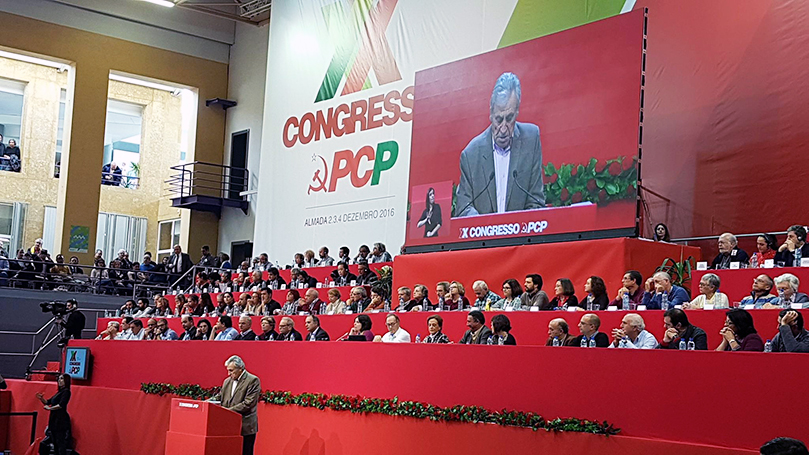
Portugal: CP demands end to policies that increase danger of forest fires
Like California, Greece and other parts of the world, Portugal has been experiencing devastating forest fires recently, in particular in the Monchique mountains in the far south Algarve region. While congratulating emergency personnel who fought the fire and calling for support for the injured and people who suffered losses, the Portuguese Communist Party calls for the identification of the causes of the fires and their correction. The Party points out the role of global warming in making such things happen but also points to policy options that for a long time had been taken by right wing governments previous to the current administration.
The former right wing government, with a servile attitude toward monopoly capital and the rules of the European Union, which led to an “obsession” with preventing government deficits, with budget cuts that left the country unprepared to combat such disasters. The Communist Party calls for an immediate reassignment of national resources to deal with this ongoing danger.
Venezuela: Communists condemn drone attack on President Maduro
The Communist Party of Venezuela (PCV) has strongly condemned the assassination attempt against President Nicolas Maduro, carried out by drone attack on August 4 in Caracas during a celebration of the founding of the country’s National Guard. Since the attack, in which Maduro was not hurt but seven National Guard troops were wounded, a number of people have been arrested.
On August 7, Oscar Figuera, the General Secretary of the PCV, expressed his party’s anger at the attempted assassination, and their continued support for the Bolivarian government. Figuera blamed the attack on the “unpatriotic” elements of the ultra-right who function “at the service of imperialism in the development of its project of recolonizing” Venezuela.
Cuba: Draft of a new Constitution published; will be submitted to a referendum
On July 22 the National People’s Power, Cuba’s Congress, approved a new draft constitution, after extensive debate and a number of amendments. The new draft constitution has been printed and widely distributed in the island nation, and will be the subject of numerous public meetings and discussions will be carried out from August 13 through November 15 of this year. The revised draft will be submitted to a popular vote by referendum, probably early in 2019.
Among the changes from the current constitution: Marriage will now be defined as being between two persons, instead of “between a man and a woman”; this opens the door to eventual same sex marriage. Other new items include the inclusion of “sustainable development” as a national goal, the repudiation of all forms of terrorism, including by state actors. The new draft would restore the position of Prime Minister alongside the presidency; this role was formerly been played by Fidel Castro but had been abolished previously. While the role of state enterprises as the central feature of the socialist economy would be emphasized once more, there are items clarifying and guaranteeing the rights of private enterprise, with limits, and of foreign investments. As the Cubans have been saying for years, the country is in the process of building socialism, not communism at this point.
South Africa: Communist Party celebrates its 97th anniversary
On July 30, the South African Communist Party (SACP) celebrated the 97th anniversary of its founding. Under its original name, the Communist Party of South Africa, its first Party Congress and original founding took place in Cape Town from July 30 to August 1 of 1921. Like a number of communist parties around the world (including the Communist Party USA, founded in 1919) the events of the First World War and the October Revolution in Russia were the stimuli which caused left wing communists in South Africa to embark on a new, communist course.
In South Africa’s case, the right wing of the existing Labour Party, headed by Colonel F.H.P. Cresswell, had supported the government of what was then the Union of South Africa in entering the war on the side of the United Kingdom and the other Entente powers. During and after the war, various groups of more left wing socialists opposed this betrayal, and these groups came together to form the Communist Party after the war.

 Join Now
Join Now